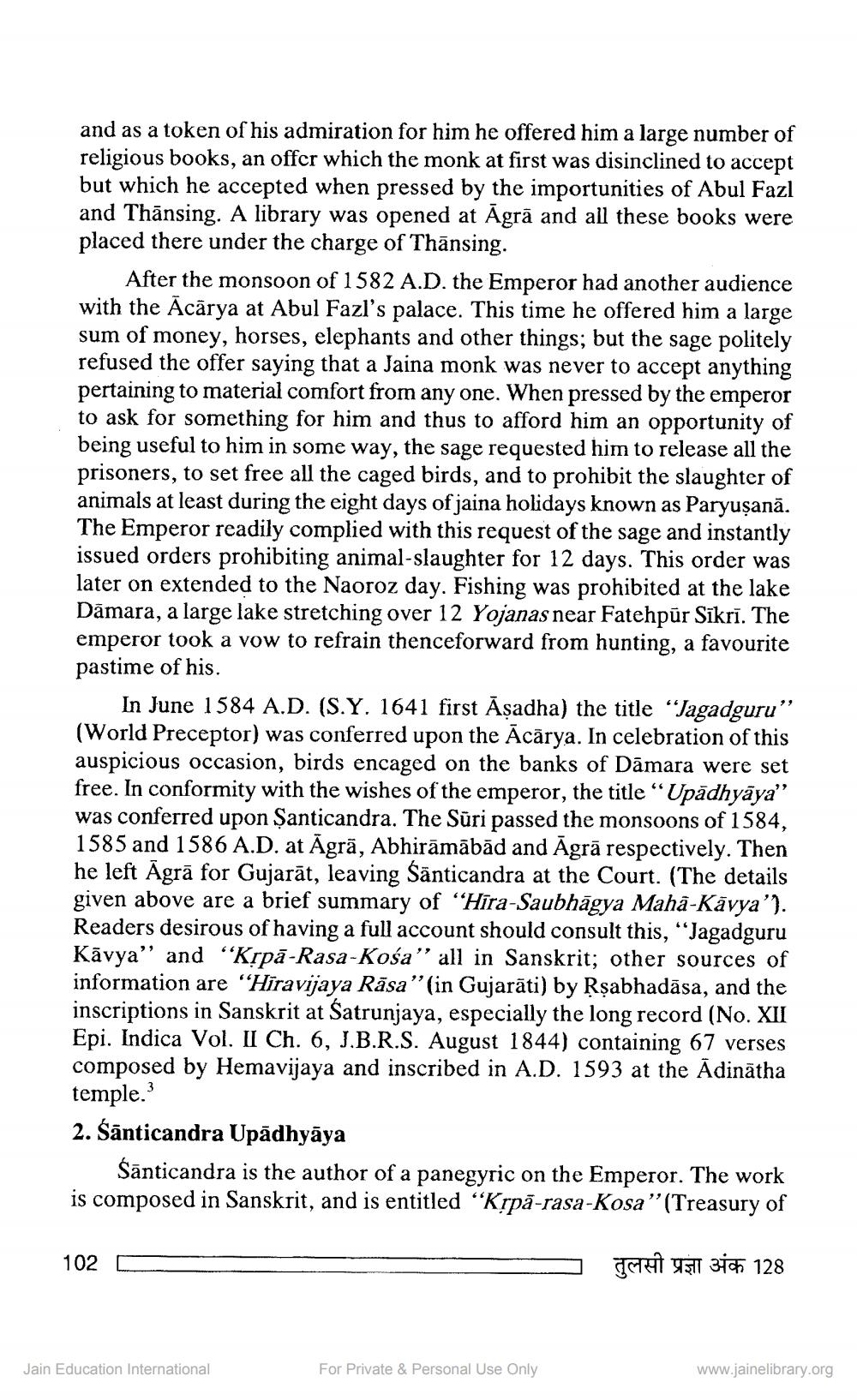________________
and as a token of his admiration for him he offered him a large number of religious books, an offer which the monk at first was disinclined to accept but which he accepted when pressed by the importunities of Abul Fazl and Thānsing. A library was opened at Āgrā and all these books were placed there under the charge of Thānsing.
After the monsoon of 1582 A.D. the Emperor had another audience with the Acārya at Abul Fazl's palace. This time he offered him a large sum of money, horses, elephants and other things; but the sage politely refused the offer saying that a Jaina monk was never to accept anything pertaining to material comfort from any one. When pressed by the emperor to ask for something for him and thus to afford him an opportunity of being useful to him in some way, the sage requested him to release all the prisoners, to set free all the caged birds, and to prohibit the slaughter of animals at least during the eight days of jaina holidays known as Paryusanā. The Emperor readily complied with this request of the sage and instantly issued orders prohibiting animal-slaughter for 12 days. This order was later on extended to the Naoroz day. Fishing was prohibited at the lake Dāmara, a large lake stretching over 12 Yojanas near Fatehpur Sīkrī. The emperor took a vow to refrain thenceforward from hunting, a favourite pastime of his.
In June 1584 A.D. (S.Y. 1641 first Āşadha) the title “Jagadguru" (World Preceptor) was conferred upon the Acārya. In celebration of this auspicious occasion, birds encaged on the banks of Dāmara were set free. In conformity with the wishes of the emperor, the title “Upādhyāya" was conferred upon Şanticandra. The Sūri passed the monsoons of 1584, 1585 and 1586 A.D. at Āgrā, Abhirāmābād and Agrā respectively. Then he left Āgrā for Gujarāt, leaving Sānticandra at the Court. (The details given above are a brief summary of “Hīra-Saubhāgya Mahā-Kāvya'). Readers desirous of having a full account should consult this, "Jagadguru Kāvya” and “Krpā-Rasa-Kośа" all in Sanskrit; other sources of information are "Hiravijaya Rāsa"(in Gujarāti) by Rşabhadāsa, and the inscriptions in Sanskrit at Satrunjaya, especially the long record (No. XII Epi. Indica Vol. II Ch. 6, J.B.R.S. August 1844) containing 67 verses composed by Hemavijaya and inscribed in A.D. 1593 at the Ādinātha temple. 2. śānticandra Upādhyāya
Sānticandra is the author of a panegyric on the Emperor. The work is composed in Sanskrit, and is entitled “Krpā-rasa-Kosa''(Treasury of
102
-
Tchet şi 3ich 128
Jain Education International
For Private & Personal Use Only
www.jainelibrary.org




